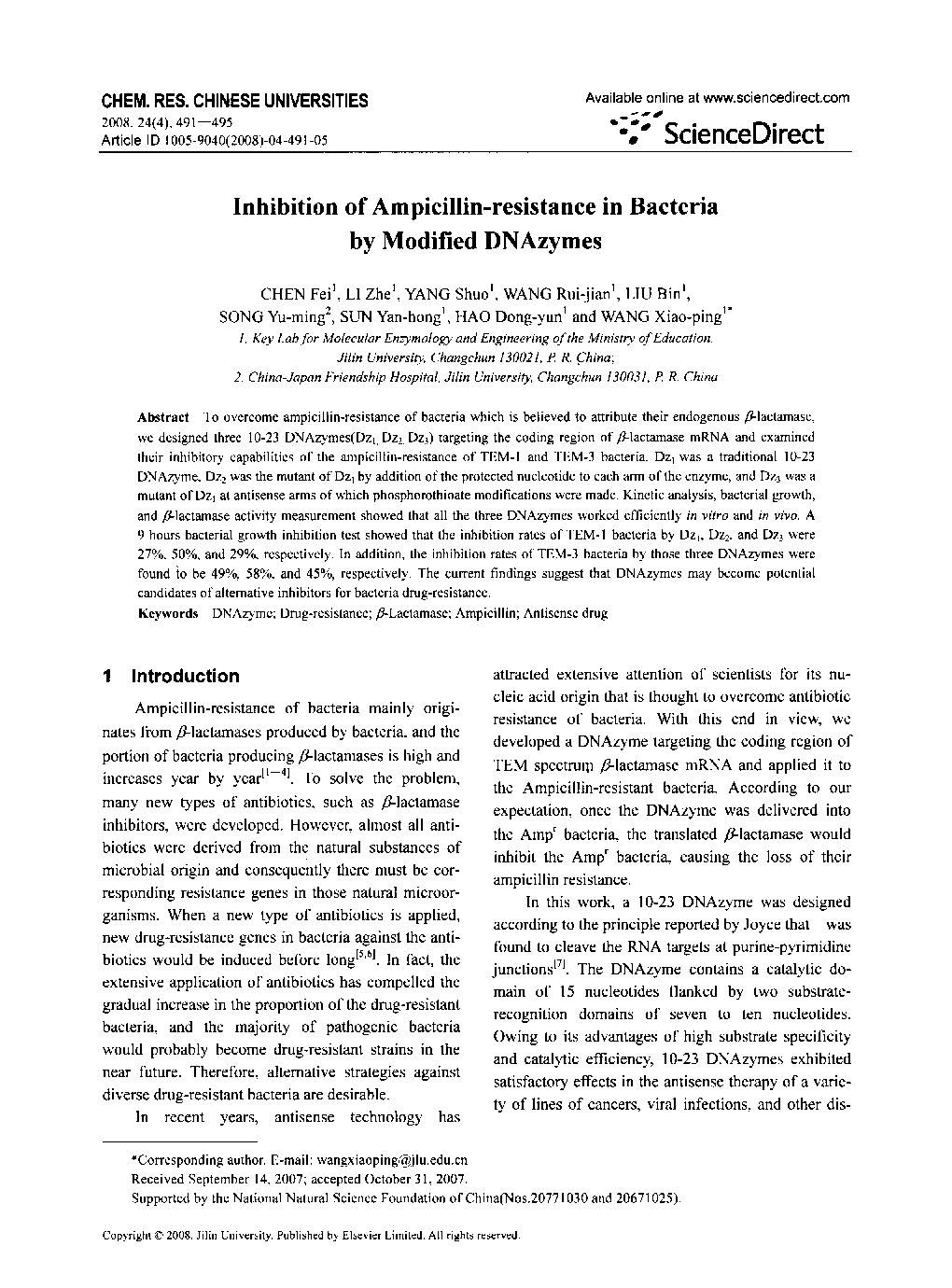| Article ID | Journal | Published Year | Pages | File Type |
|---|---|---|---|---|
| 1251093 | Chemical Research in Chinese Universities | 2008 | 5 Pages |
Abstract
To overcome ampicillin-resistance of bacteria which is believed to attribute their endogenous β-lactamase, we designed three 10-23 DNAzymes(Dz1, Dz2, Dz3) targeting the coding region of β-lactamase mRNA and examined their inhibitory capabilities of the ampicillin-resistance of TEM-1 and TEM-3 bacteria. Dz1 was a traditional 10-23 DNAzyme, Dz2 was the mutant of Dz1 by addition of the protected nucleotide to each arm of the enzyme, and Dz3 was a mutant of Dz1 at antisense arms of which phosphorothioate modifications were made. Kinetic analysis, bacterial growth, and β-lactamase activity measurement showed that all the three DNAzymes worked efficiently in vitro and in vivo. A 9 hours bacterial growth inhibition test showed that the inhibition rates of TEM-1 bacteria by Dz1, Dz2, and Dz3 were 27%, 50%, and 29%, respectively. In addition, the inhibition rates of TEM-3 bacteria by those three DNAzymes were found to be 49%, 58%, and 45%, respectively. The current findings suggest that DNAzymes may become potential candidates of alternative inhibitors for bacteria drug-resistance.
Related Topics
Physical Sciences and Engineering
Chemistry
Chemistry (General)
Authors
Fei CHEN, Zhe LI, Shuo YANG, Rui-jian WANG, Bin LIU, Yu-ming SONG, Yan-hong SUN, Dong-yun HAO, Xiao-ping WANG,
